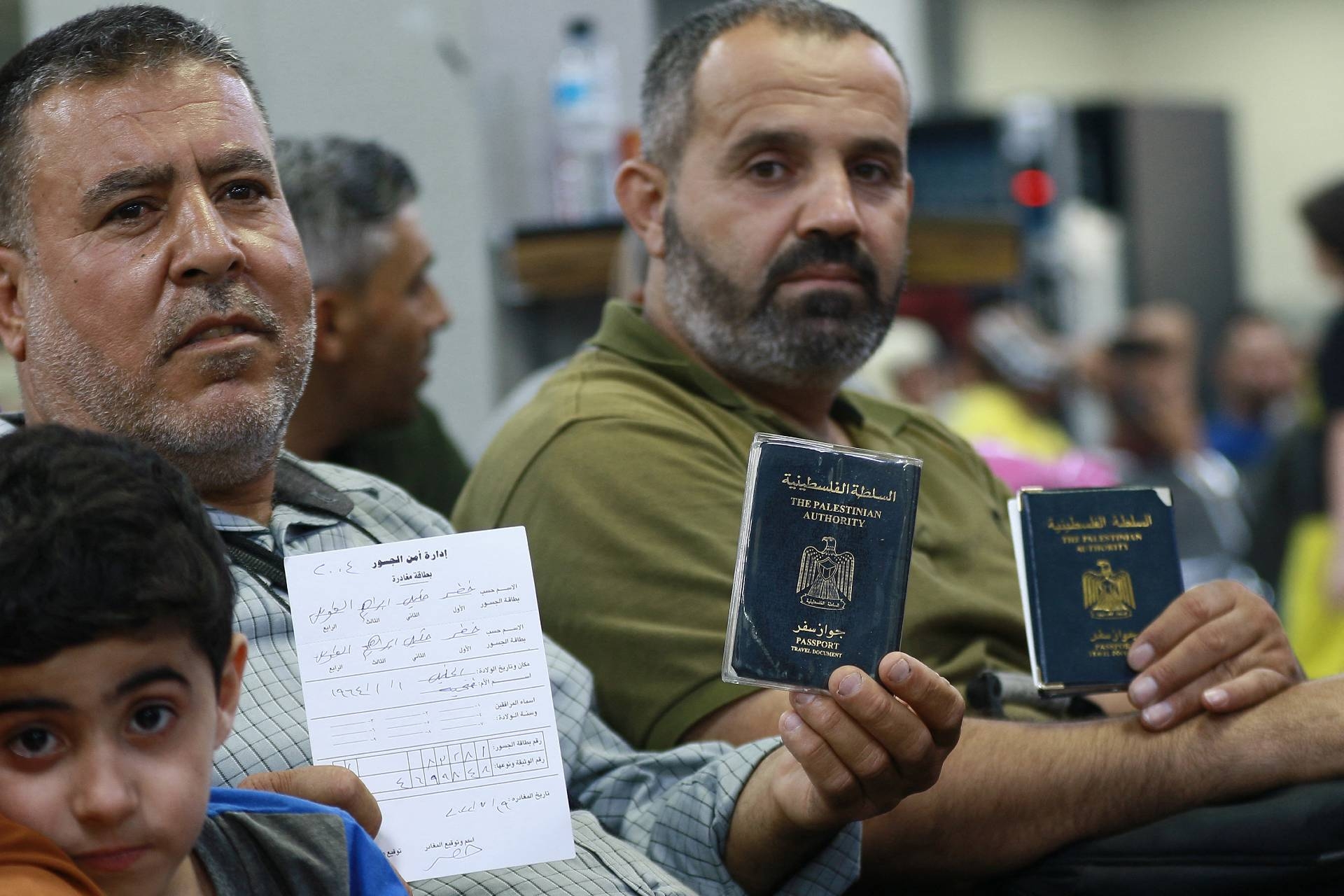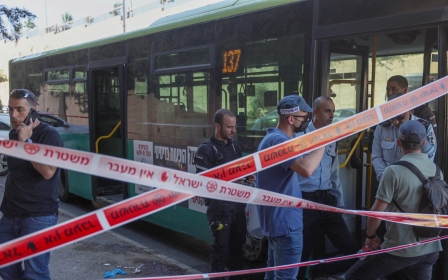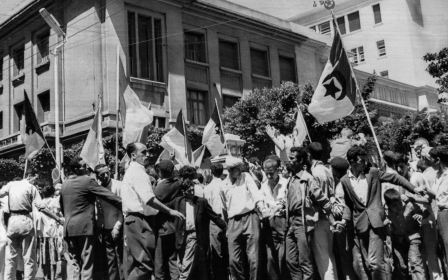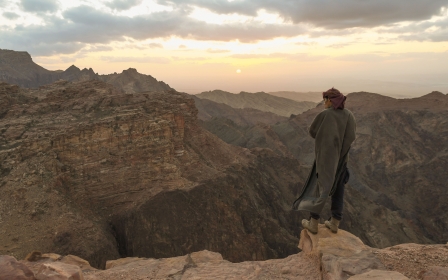Palestine: Hundreds stranded at Jordan river due to restricted Israeli crossing hours

Hundreds of Palestinians from the occupied West Bank and East Jerusalem have been stuck for days at a crossing with Jordan due to Israeli limited opening hours.
A bridge that crosses the Jordan River is the only available route for Palestinians in the West Bank and for some from the besieged Gaza Strip, who obtain permits to use it to travel to the outside world.
The bridge is controlled mainly by Jordan and Israel, which also coordinate the movement of Palestinians with the Palestinian Authority (PA).
The crossing carries three official names: the Allenby Bridge (named after the British governor Edmund Allenby) on the Israeli side; al-Karameh (the Dignity) on the Palestinian side; and the King Hussein in Jordan.
New MEE newsletter: Jerusalem Dispatch
Sign up to get the latest insights and analysis on Israel-Palestine, alongside Turkey Unpacked and other MEE newsletters
While the crossing is open 24 hours on the Jordanian side, Israeli staff operate it from 8am and shut the gates at 11pm during the week, and at midday on Friday and Saturday.
This has turned the crossing into a bottleneck, with almost 5,000 Palestinians travelling daily through the King Hussein during the school summer holidays and the Hajj season in Mecca.
Some Palestinians have been stranded for up to three days in the scorching heat of the Jordan Valley - which can reach 40C - before being able to cross to the Israeli side, according to local media.
Jordan said it has been sending 80 to 85 buses a day full of Palestinians to the Israeli and PA crossings, only for many of them to be returned to King Hussein once the Allenby bridge shuts at 11pm.
'Catastrophic conditions'
Hussein al-Sheikh, the PA's head of the General Authority of Civil Affairs, which coordinates security and civilian matters with Israel, tweeted on Monday that the Israeli government was "responsible for the catastrophic conditions" at the crossing.
"We are conducting intensive contacts with our brothers in Jordan to find solutions to this tragic situation experienced by Palestinians in their movement," he tweeted.
Sheikh said that 700 Palestinians would be waiting at 7:30am at the Jordanian side for the Allenby crossing to open.
Mazen al-Farayeh, Jordan's interior minister, told the country's Radio al-Balad on Tuesday that the Israeli side could not handle the numbers of Palestinians travelling, which had led to many of them being stranded.
Farayeh said that on some days up to 7,000 Palestinians had attempted to cross. On average, the Israeli side allowed a bus of 60 passengers to cross every half an hour during the 15 hours of the Allenby crossing opening, which would mean only 1,800 people being allowed through.
Palestinians have campaigned to have the Allenby crossing opening hours extended and to scrap the departure tax of 158 Shekels ($46), paid to the Israeli Ministry of the Interior when they depart to Jordan.
'Worrisome' and 'unprecedented'
On Monday, Jordan had asked Palestinians travelling to the West Bank to book a time slot online before heading to the King Hussein bridge, in a bid to ease congestion at the crossing. Travellers who failed to book a time slot would not be allowed into Jordan, authorities said.
Firas Abu Qaoud, the governor of Jordan's Balqa governorate, where the King Hussein crossing is located, said the situation was "worrisome" and "unprecedented".
Abu Qaoud said the new booking system would allow 2,000 Palestinians to cross daily for the upcoming 10 days.
According to official Jordanian numbers, since the beginning of July at least 155,000 Palestinians had crossed the bridge to the West Bank and East Jerusalem. This almost matches the pre-pandemic figure of July 2019, when 156,000 people travelled over the Sheikh Hussein bridge.
Middle East Eye delivers independent and unrivalled coverage and analysis of the Middle East, North Africa and beyond. To learn more about republishing this content and the associated fees, please fill out this form. More about MEE can be found here.




